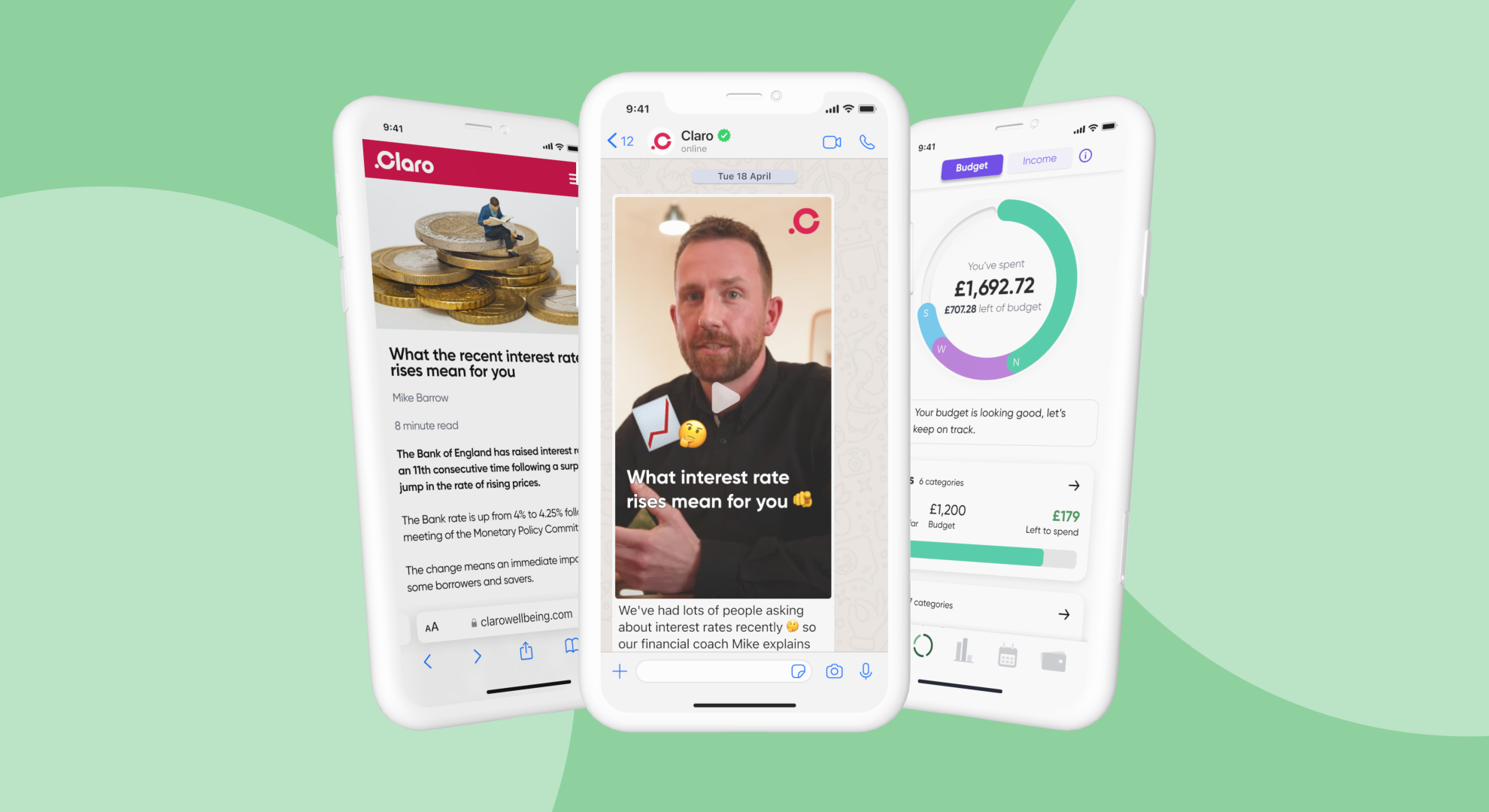6 min read
Should employers acknowledge Blue Monday?
Blue Monday (15 January) has a mixed reputation. But there’s still value in using the day to raise awareness of mental health and wellbeing...
2 min read
Ciara Knight
04-9-2022

The Oxford Dictionary defines health as ‘the state of being free from illness or injury’. What’s important to note is that the explanation doesn’t refer to any particular division of health, whether that’s physical, mental or even financial. Rather, health relates to being in a fault-free condition. By this definition, health is made up of a multitude of areas, not just the usual presumed category of physical. Therefore, on the journey to promote good health, we must bear in mind that the concept incorporates many areas, including mental, physical, emotional, spiritual, social, intellectual and even financial.
Businesses will always seek to support the wellbeing of their employees. To date, this focus has mainly been on physical and mental health, but the spotlight has been shining brighter on financial health of late, largely due to the continuing rise in the cost of living. The core aim of a competitive workplace benefits package is to ensure that current employees feel valued, while also attracting high-quality talent to join the company. From the company’s perspective, there are many advantages to these benefits, too. For instance, a benefit that gives employees a training budget can see workers upskilling, and then applying their newfound expertise to contribute to the success of business. Put simply, benefits are a win-win for employers and their teams.
Companies will often prioritise physical health as a key area in their benefits package. Whether that’s through subsidised gym memberships or cycle-to-work schemes, the underlying aim is to keep workforces in good physical condition, which can contribute to preserving mental health. It’s a benefit for both employers and employees, as good mental and physical health can reduce the number of sick days being taken. But sick days don’t just come from poor physical health. Stress can also contribute.
Financial wellbeing, particularly during an ongoing cost of living crisis, is something that there is an opportunity for the workplace to address. Among the main sources of stress contributing to mental health issues, money-related stress is in a high placement on the list. According to Claro Wellbeing’s 2022 Financial Wellbeing Report, 43% of respondents cited money as their number one worry. Some 50% of employees are worried about their finances, with a staggering 86% saying that these worries impact their performance at work.
People are in employment for many reasons, largely to ensure that they have a steady and sufficient level of income to survive on. When that income is no longer enough due to the rising cost of living, their mental health can start to deteriorate as a result.
With the consistent rise in awareness around mental health, particularly in the workplace, companies are keen to prove that they value the mental wellbeing of their staff on an equal footing with physical health. The standard workplace benefits package usually has some form of offering in this department, whether that’s through subsidised therapy appointments or access to helpful online resources. But this benefit facilitates treating the outcome rather than trying to tackle the cause.
Employers have the opportunity to get to the root of the problem before further issues arise. A good level of financial literacy can enable people to make well-informed decisions regarding their finances. Money-related stress can be alleviated through education (and pay rises, where available), which can minimise the chance of ensuing mental health problems.
Of course, financial wellbeing alone is not the golden ticket to impenetrable health. But the combination of solid physical, mental and financial health is a powerful defence against life’s unexpected challenges. The know-how to set up an emergency fund, for example, can leave people with a sense of confidence and empowerment that will trickle into other aspects of everyday life.
The workplace will always benefit from workers that are focused, happy and stress-free. By giving financial health the same prominence as physical and mental health, benefits packages are providing more well-rounded offerings that can successfully attract and retain the best talent. For employers looking to protect their workforce from ill health, the three-pronged approach of looking after mental, physical and financial health is a great place to start.

6 min read
Blue Monday (15 January) has a mixed reputation. But there’s still value in using the day to raise awareness of mental health and wellbeing...

4 min read
Ever wished you had a money-whiz friend you could ask anything, as often as you like?

7 min read
Millions are being impacted by financial stress. Yet, until now, workers in frontline occupations have not been able to benefit from educational...